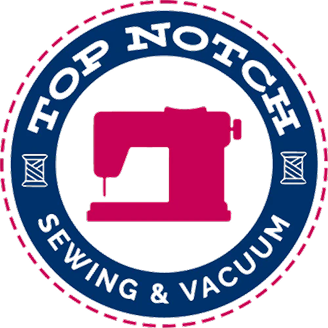
Choosing between Domestic & Industrial Sewing Machines
Ever wondered if you are getting fooled by words such as heavy-duty, semi-industrial, leather sewing machine but do not know which one will suit your requirement the best.
Today, we will be covering the difference between an industrial sewing machine and a domestic sewing machine and try to guide you to make the right choice about buying one based on your skill level so.
Let’s begin,
Domestic Sewing Machines
Domestic machines are made for a variety of simple or basic tasks such as hemming, quilting or mending, these machines are lightweight, portable and designed for performing a variety of stitches with a user-friendly interface however they’re not built for continuous use or heavy-duty tasks or working with heavy-duty fabrics such as leather.
So the pros of having a domestic sewing machine are that it's small, portable, easy to use and learn with its user-friendly interface and it's affordable too.
Let's dive into its key features so that you can understand it better -
- Most domestic machines come equipped with multiple stitch options, including decorative stitches and buttonhole capabilities. Bernina sewing machines offer a variety of stitches for creating different garments at home, and even a range of optional accessories such as a Bernina stitch regulator for consistent stitches while free-motion sewing and quilting regardless of your speed. You can sew, embroider, and quilt, but the performance is limited when it comes to speed and handling heavy fabrics.
- Domestic machines are easy to set up, and operate and come with user-friendly interfaces and functionalities like clear bobbin covers and easy threading mechanisms.
- Coming to the speed of these machines its typically between 650 and 1,000 stitches per minute making them suitable for beginners and small-scale sewing projects.
- Prices for domestic machines generally start as low as $150 and climb to thousands, making them accessible.
- These machines are often lightweight, smaller and compact, making them easy to transport for classes or workshops, and great for small projects, repairs, and hobby sewing. They're ideal for those who sew for a few hours at a time and don’t need to work on tough fabrics since they are designed for lighter fabrics such as cotton, linen, and other everyday materials.
So if you’re someone who sews at a slower speed for a limited period of a few hours and doesn't need to work with heavy fabrics like leather or thick denim a domestic machine is the pick for your basic garment construction needs.
Industrial Sewing Machines
Industrial sewing machines are built for heavy-duty use and designed to handle large-scale projects like mass production of bulky, heavy materials and are usually fixed to a table, which makes them far less portable but they are built to withstand the rigours of heavy use, making them a long-term investment for serious sewists.
The benefits of having an industrial machine are its speed, durability, and efficiency however you can consider it as a heavy, expensive investment which is designed to typically perform one type of stitch very well.
Now let's delve into its key features that’ll help you make an informed decision -
Key Features:
- Industrial machines can sew up to five times faster than domestic ones with up to 5,000 stitches per minute which is crucial for professional work or large projects with leather, denim, or other heavy-duty fabrics.
- Industrial machines typically produce higher-quality stitches as they are designed to perform a certain type of task efficiently making them ideal for those who prioritize precision and finish in their work. Additionally, these machines often include features such as knee lifts for the presser foot, adjustable stitch lengths, and automatic bobbin winders, which streamline the sewing process. For example, the automatic bobbin winder allows users to fill bobbins while sewing, reducing downtime and many more such features that ultimately make the process of sewing faster, more effective and more efficient.
- Industrial machines are made to last since they have heavier motors and more durable components to handle tough jobs and long hours of operation.
- It's not like they cost more and do less if you think so try looking at it from a long-run perspective, these machines are more cost-effective because they are durable and perform at a higher level so they're just a larger upfront investment. But they deliver precision and speed, making them ideal for professional use.
However, they need regular maintenance, like oiling and cleaning, and technician visits to keep them in top shape since they handle heavy fabrics and work for hours without breaking a sweat.
Making the Decision
When choosing between domestic and industrial sewing machines, consider the following factors:
- If you’re a professional with precision and speed as your priority and you perform complex functions and haven’t learnt the basics yet or you perform sewing for long hours and need a cost and time-efficient partner for your work an industrial machine might be the best choice for you.
- If you’re looking for an affordable short-term solution for basic needs like intricate designs and work with light fabrics then a heavy-duty machine might not be the right investment for you since it suits those who can perform more sewing tasks and have high skill levels and budget since they can optimally use those industrial machines and get the return on their investment as well.
In summary:
- Go with a domestic sewing machine if you need versatility, and portability, and are working on light fabrics or smaller projects.
- Choose an industrial sewing machine if you need speed, durability, and the ability to handle heavy-duty tasks for hours on end.
You can find some of the best sewing machines by Bernina, Bernette, ever sewn and grace here at Top Notch Sew & Vac, click here on the links to go the catalogue and explore your options.
